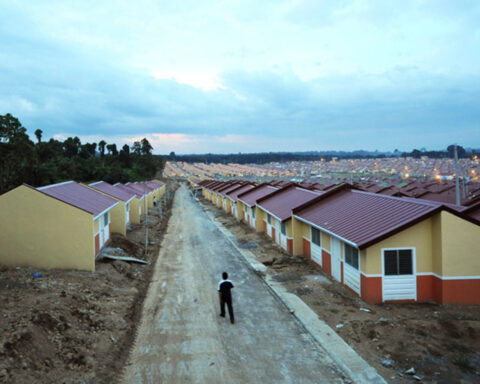A new report by the United Nations University warns that humanity is facing threats from space and climate change that could have irreversible and catastrophic impacts on people and the planet.
However, the report also highlights the opportunity to avert these worst effects by exploiting “positive tipping points” – changes that have cascading and self-perpetuating positive impacts on society.
The report emphasizes that our behaviors and values play a crucial role in determining the outcome, and whole societies will need to make unprecedented changes to mitigate disaster.
It calls for individuals to recognize their role within interconnected systems and make choices that have positive impacts.
Interconnected Risks of Tipping Points
The report highlights that humanity is on the edge of triggering catastrophic tipping points that could have irreversible impacts on ecosystems, groundwater, insurance, the space industry, and human health.
This identifies six tipping points, including a chain reaction of ecosystem collapse, groundwater depletion, melting mountain glaciers, space junk destroying the space industry, unlivable heat, and an uninsurable future due to severe natural disasters.
These tipping points are interconnected and require unprecedented changes at both the societal and individual levels to be averted. The report emphasizes the importance of recognizing our role within interconnected systems and making choices that have positive impacts.
Environmental Challenges In The Philippines: A Regional Perspective
The Philippines is indeed grappling with a series of pressing environmental challenges.
Ecosystem collapse, driven by factors like deforestation, habitat destruction, and overfishing, poses a significant threat, resulting in localized instances of biodiversity loss and disruptions to crucial ecosystem services.
Moreover, the country faces a critical issue of groundwater depletion, particularly evident in regions like the Cagayan Valley, where extraction surpasses the natural recharge rate, leading to a decline in groundwater levels.
While the Philippines doesn’t have mountain glaciers, the broader global impacts of glacial melt, such as rising sea levels and altered weather patterns, indirectly affect the nation.
Although not directly impacted by space debris, it is a global concern, and while no specific data indicates its direct impact on the Philippine space industry, the risk remains a consideration.
The Philippines has also experienced extreme heat events, particularly during the dry season, posing health risks, particularly for vulnerable demographics. While specific instances of “unlivable heat” haven’t been reported, heat-related health impacts are a recognized concern.
Furthermore, the country faces challenges related to the insurability of risks, particularly due to heightened vulnerability to natural disasters, leading to increased insurance costs and difficulties in obtaining coverage, especially for marginalized communities.
These challenges are dynamic and may evolve, emphasizing the importance of consulting current, region-specific reports from local and international environmental and disaster management agencies.
From Tipping Points To Turning Points: The Power Of Positive Change
To avoid the catastrophic effects of the tipping points, the UN report calls for unprecedented societal changes. The report suggests leveraging positive tipping points that can fundamentally transform society for the better.
Plant-based protein alternatives that become comparable in quality, affordability, and convenience to meat could lead to widespread adoption, reducing livestock farming and its environmental impacts.
However, triggering positive tipping points for issues like groundwater depletion and space debris may be more difficult.
The report emphasizes the importance of raising awareness and making these issues relevant to human lives.
Overall, the report calls for transformative changes at both the societal and individual levels to avert disaster while highlighting opportunities for positive change.
Source: PhilNews24 | October 26, 2023








